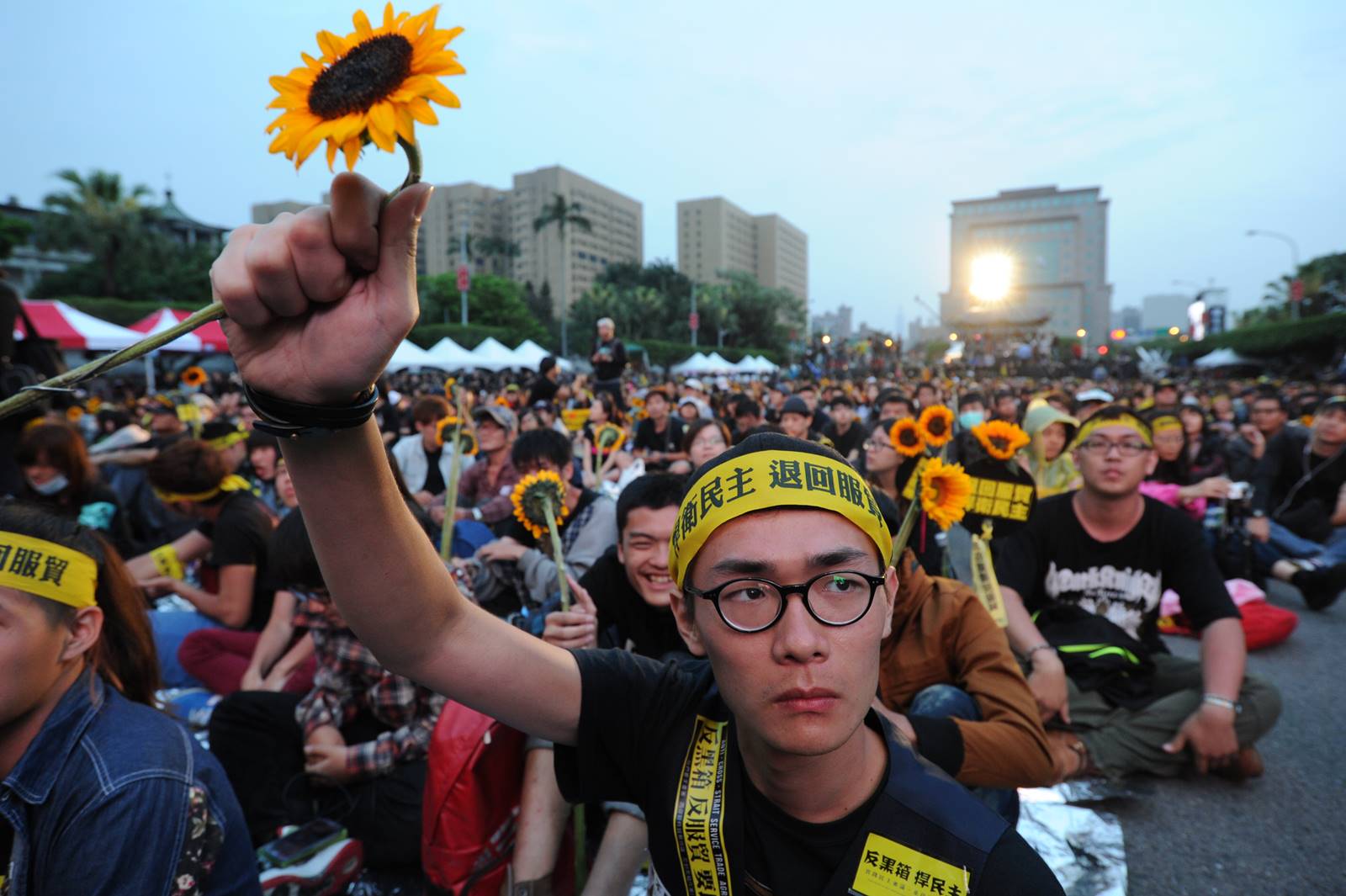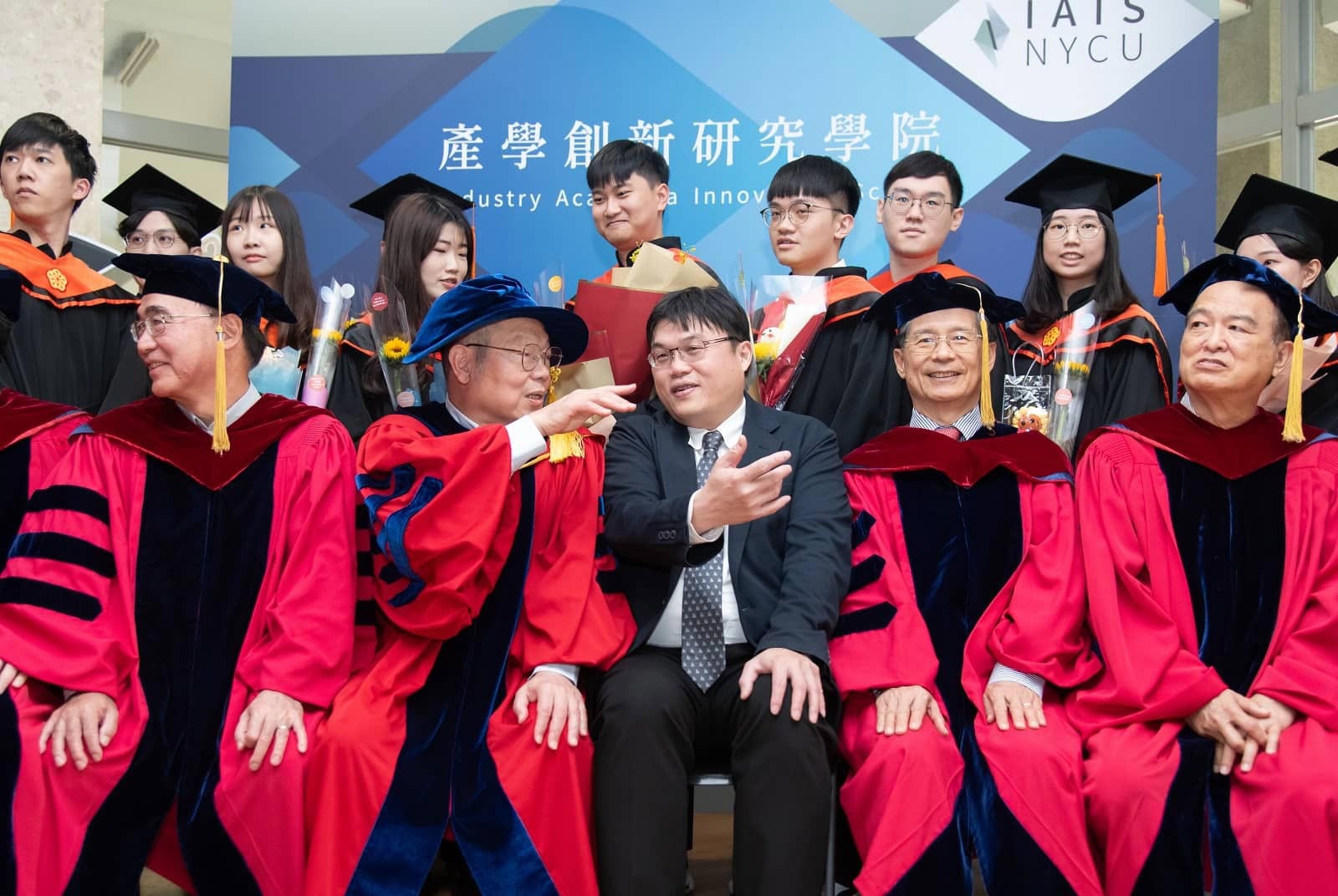How the Sunflower Movement changed Taiwan

Source:Chien-Tong Wang
A decade after the Sunflower Movement, Taiwan continues to drift apart from China. However, the new political landscape and third-party forces once highly anticipated have now taken divergent paths.
Views
How the Sunflower Movement changed Taiwan
By Vincent Chengweb only
At 33 years old, Chen Wei-ting has embarked on a sparsely populated path.
Formerly a leader in the Sunflower Movement, he chose to step away from Taiwanese politics and pursue a Master's degree in Diplomacy and International Law at Tufts University in the United States. After graduating last year, he secured a job as a geopolitical analyst at a private firm in Washington D.C. on an internship visa, specializing in producing research reports related to the Taiwan Strait situation as per client demands.
Sitting in front of a video camera at midnight, he looks largely the same as he did a decade ago, except for a hint of weariness. "It's been almost half a year since I moved to DC, and I haven't had much time to explore. To be honest, adapting to work has been challenging. This is my first time working in English and learning to answer questions using business logic," Chen said.
A movement that altered Taiwan's development trajectory
On the evening of March 18, 2014, students and civic groups opposing the "Cross-Strait Trade in Services Agreement" abruptly stormed the Legislative Yuan, initiating the 23-day Sunflower Movement.
Chen Wei-ting and Lin Fei-fan, who jointly assumed command, were the most prominent student leaders.
This unexpected occupation not only prevented Taiwan from establishing closer economic ties with China but also dashed hopes of political negotiations between the two sides.
The Democratic Progressive Party (DPP) benefited from the anti-government pro-independence social climate, securing a landslide victory in local elections at the end of the year and subsequently winning three consecutive presidential elections.
The global movement shook participants' destinies as well.
The passionate "Sunflower Generation" eager for public affairs involvement entered politics through various channels fueled by the movement's momentum. Where are they today, ten years later?
Sunflower Movement. (Photo: Chien-Tong Wang)
Once a passionate activist, Chen is now exploring himself in reality. He contemplated entering politics by running in a by-election for a seat in the Miaoli County legislature but withdrew after allegations of past sexual harassment surfaced. He then joined the New Power Party, taking a backseat role focusing on assisting election cadres and party assistants.
After actively engaging in politics, the self-proclaimed "leftist youth" felt his personal abilities were lacking. "To claim myself as a leftist, I must provide well-founded analyses on how existing international trade systems can be more worker-friendly. However, just understanding trade regulations is far beyond my comprehension," prompting him to consider leaving the political scene early and pursue studies in the US.
It wasn't until after the 2020 presidential election, when he broke his ankle while skateboarding and couldn't walk for three months, that he began preparing to apply for further studies.
Chen Wei-ting: Delving into semiconductors to build expertise
Engaging in social movements in Taiwan meant advocating for grassroots rights. In the US, Chen Wei-ting is attempting to view Taiwan's potential positioning within the US-China competition from a macro perspective.
In his first year of the master's program, Chen took a course on "US Foreign Policy" and chose "Biden Administration's China Policy" as the topic for his final report. Professor Chris Miller noticed this Taiwanese student and invited him to join the research assistant team, responsible for gathering Taiwan policy data for the then-unpublished book "Chip War."
This opportunity led Chen to delve into the unfamiliar semiconductor industry. As an assistant, he interviewed US and Taiwan officials as well as industry personnel, attempting to answer questions like "Is TSMC Taiwan's silicon shield?" In the end, his master's thesis was titled "Cooperation in Taiwan-US Semiconductor Policy," leading him to find an internship.
With his internship visa expiring, Chen is inclined to stay in the US, unsure if his current self can make a significant contribution to his homeland, Taiwan.
"Before joining movements, our demands weren't personal but were drafted by NGO teachers, lawyers, and professors twenty years older than us. In another five to ten years, I'll be their age. Do I have the ability to provide professional opinions and lead the younger generation in political action?" he continues to question himself.
When asked about returning to politics, Chen hesitates, "The question should be, what unique perspectives or expertise do I have that necessitate my presence?" While not dismissing politics, he understands that merely relying on visibility as a "movement leader" isn't enough to stand firm.
"Some may feel I've stayed in the US for too long, but I think it's just the beginning," Chen Wei-ting's current goal is to continue accumulating strength in geopolitical and international trade policies. The Sunflower Movement ten years ago was just a segment of his life's journey.

Lin Fei-fan: Refusing to be defined solely by the Sunflower
The political energy of the Sunflower Movement has indeed waned. The New Power Party, born out of the movement, garnered only 2.57% of the party vote in January's elections. On the spectrum of cross-strait stances, Taiwan People's Party, closer to the Blue Camp, ironically became the representative of the third force.
For the Sunflower Generation that still aspires to make an impact in politics while emphasizing Taiwan's sovereignty, joining the ruling team of the Democratic Progressive Party (DPP) seems like the only option.
Lin Fei-fan, 35, also doesn't want to be defined solely as a "Sunflower leader." He joined the DPP in 2019 and currently serves as a director at the party's think tank, New Frontier Foundation. With a master's degree from the London School of Economics and Political Science, he hopes to leverage his expertise in diplomacy and national security.
"I'm honored to have been part of the movement that changed Taiwan's society and my life, but I don't want my contributions and efforts to society to be limited to the Sunflower Movement," Lin believes that his fellow movement partners who entered political parties and public sectors can influence policies based on their expertise and beliefs. He looks forward to this group proposing more forward-thinking ideas on strengthening Taiwan's resilience. Ten years later, some remain rooted in the same spot, striving for unchanging goals.
Lawyer Lai Chung-chiang, who co-founded the "Cross-Strait Agreement Watch Alliance" in 2010, is one of the earliest participants in the movement. Continuing as a convener for the Economic Democracy Union think tank, he urges the government to amend regulations on Chinese investment in Taiwan and regulate Shopee's financial flows to ensure Taiwan's politics and economy are not coerced by China.
"While the Sunflower Movement pulled Taiwan out of China's vortex, the conservative bureaucratic structure and corporate influence within the DPP's administration remain unchanged," says Lai, his hair now partly white, still passionately discussing China's threats.
In the conference room named after Taiwan's first lawyer Yeh Ching-yao, Lai recounts the "Governing Police Incident" a century ago when Taiwanese people petitioned the Japanese colonial government to establish a parliament, explaining that every political reform in Taiwan has been catalyzed by broader social movements. "Politics is crucial, but I hope to stand on the side of social movements, participating in key moments that drive social progress," he says.
The Sunflower Movement changed Taiwan's relationship with China, and its influence continues to this day. However, the former student leaders are still awaiting their breakout amidst Taiwan's turbulent domestic political landscape.
Have you read?
- How can China maintain 5% GDP growth with 'new productive forces'?
- Following Kinmen patrol fatalities, will China keep challenging the Taiwan Strait median line?
- What can we learn from Taiwan's first civilian-led war game?
Uploaded by Ian Huang






